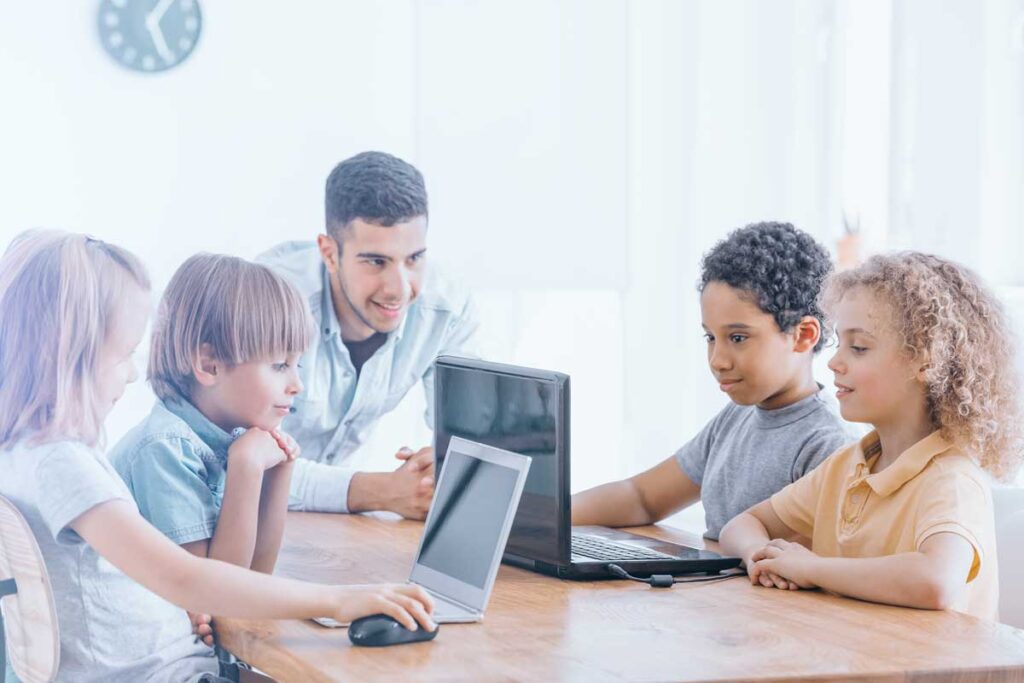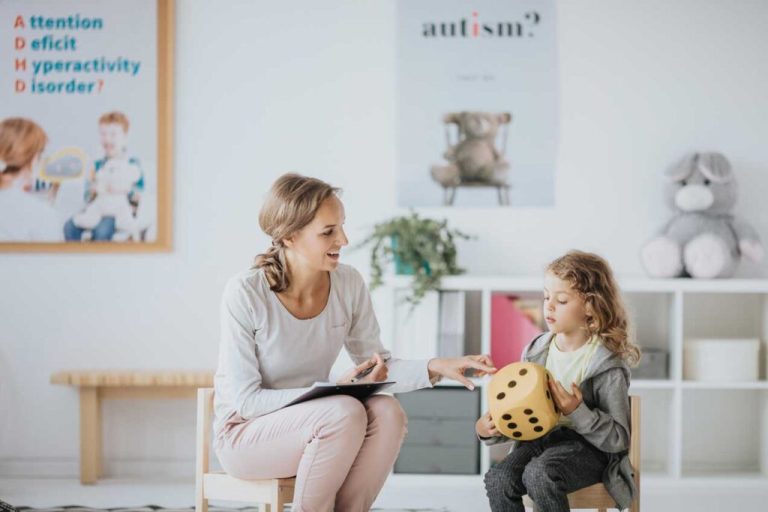Social-emotional Learning
Social-emotional learning (SEL) is the process through which children and young adults become aware of themselves, learn how to establish healthy relations, develop strong decision-making skills, and comprehend the ideas of self-improvement, mental health, and other personal objectives.
It is fundamental to educate the children on these concepts so that they can live a physically and psychologically balanced life while also maintaining strong and healthy social relationships. SEL is essential because it helps youngsters understand their mental states and emotions, develop empathy for others, and work on themselves to improve these qualities. Parents and teachers play an important role in teaching these concepts to the students. SEL affects learning, notably via altering children’s cognitive processes. Children who are exposed to SEL at an early age tend to develop into more emotionally and socially balanced adults. Students engaging in SEL programs also exhibit better conduct in the classrooms, higher stress and depression management skills, and better attitudes towards themselves and others.
There are five primary skills to develop in SEL;

Self-awareness
Self-awareness is a term used to describe the state of being fully aware of your emotions, thoughts, feelings, ideas, and actions. It is the ability to analyze self and make appropriate modifications to them when needed. It involves a thorough assessment of your skills, a positive attitude, and a strong feeling of self-effectiveness and optimism. The ability to relate emotions, sentiments, and thoughts to actions or behavior is a sign of self-awareness.
Identifying and labeling emotions is an integral part of self-awareness. To understand your own emotions and engage in activities that address these feelings, you must be able to identify your emotions first. Students learn how to recognize and identify their emotions and feelings in SEL, which is the first step toward self-awareness. Real self-comprehension will enable pupils to regulate their behavior. To have a real awareness of themselves, they must be receptive to criticism or praise. Real self-comprehension will enable students to regulate their behavior. Students’ confidence grows as they learn to comprehend their emotions, which adds to the idea of self-awareness.


Self-management
Self-management is an important skill that involves the ability to control one’s emotions, moods, ideas, and behaviors. It necessitates that the individual handles tough events, tension, urges, and so on while displaying the finest possible behavior in every circumstance. This skill is important in achieving personal progress and dealing with external problems.
Self-discipline is an important part of self-management that requires a person to manage his or her feelings and inclinations. Self-discipline helps individuals, despite distractions, to disregard external impulses to focus on the purpose at hand. To succeed in self-management, students must be organized and set achievable goals. According to psychology, students tend to be more successful when working with small goals. Goals may be conveniently accomplished if students are internally driven and do not rely on external influences to push them in the right direction. Goal-setting combined with consistent self-motivation is essential for mastering the ability of self-management.

Social awareness
Social awareness is the ability of an individual to understand the sentiments and emotions of others and empathize with them. It involves a sense of compassion for all individuals, not simply those of a specific culture or community.
Social awareness requires individuals to show empathy i.e understand the perspectives of other people. Students should acknowledge the significance of understanding that every person is unique and that differences in color, faith, sex, or religion are to be cherished instead of disregarded or disputed. This skill also focuses on developing respect for every individual. Respect calls for students to look at the world with an open mind and not judge immediately. In SEL, students are taught to treat each other with respect and compassion.
Relationship skills
Relationship skills include the ability of individuals to form healthy and fulfilling relations with others. This skill includes clear communication, active listening, co-operation, constructively settling conflicts and humbly asking for help in extreme circumstances.
Effective communication is an integral component of relationship skills. Communication entails not just speaking and expressing information clearly, but also interpreting body language, facial emotions, and other gestures. Children who acquire self-awareness are more likely to develop good communication skills. Apart from speaking, communication also involves actively listening to what the other person has to say. The ability to hear and interpret what the other person says and react accordingly is important for active listening. In SEL, students are taught to pay attention to body language, expressions, and maintain sufficient eye contact to develop active listening skills.
Good cooperation is the result of effective communication. When coping with an issue, students are taught to cooperate and consider the perspectives of others. These abilities help individuals to establish strong relationships with others.
Responsible decision making
Responsible decision-making is the capacity to make balanced and ethically correct judgments after properly identifying, assessing, and evaluating the issue. Students are taught in SEL how to make responsible decisions by taking into account factors such as safety, ethical norms, pragmatism, and so on.
The first step in making responsible decisions is identifying the problem. Students are taught how to recognize problems in a variety of situations. Following appropriate identification, students are required to evaluate the problem from several aspects. This will aid them in identifying the underlying reasons and finally lead them to a solution. They can then use the best strategy to tackle the problem. Finally, a comprehensive examination of the problem and solution is required to ensure that students are prepared for comparable future situations and know how to deal with them appropriately.



Conclusion
All of the mentioned social-emotional learning abilities are ultimately intended to assist children toward self-improvement. Various psychological theories can assist parents, teachers, and social workers in understanding the main aspects of SEL to maintain better mental health and social development among youth. Students gain tremendously from proper SEL education in both personal and societal sectors. It considers contemporary psychological and societal concerns and teaches children how to deal with them using the appropriate set of abilities.







